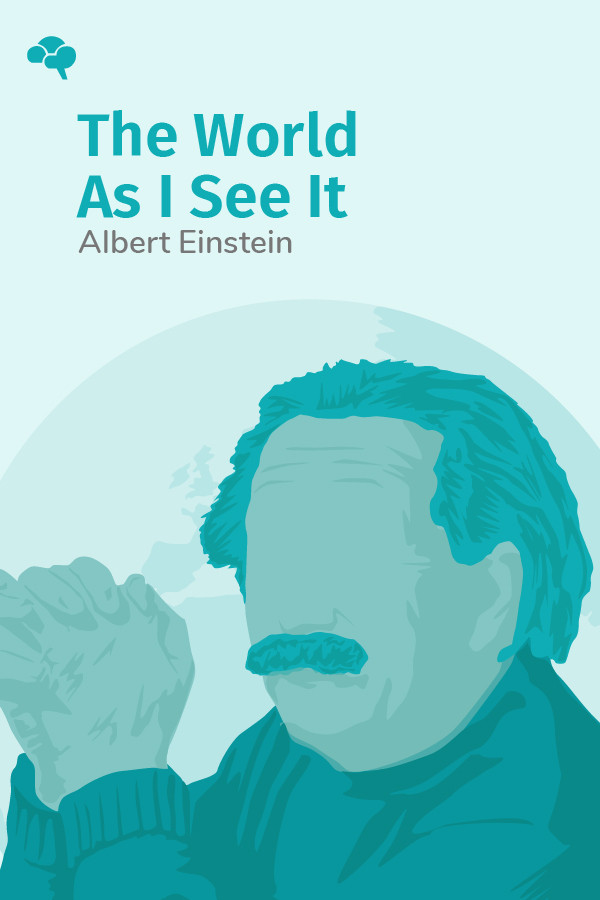Albert Einstein
Albert Einstein (14 March 1879 – 18 April 1955) was a German-born theoretical physicist. Einstein developed the theory of relativity, one of the two pillars of modern physics (alongside quantum mechanics). Einstein's work is also known for its influence on the philosophy of science. Einstein is best known by the general public for his mass–energy equivalence formula E = mc2 (which has been dubbed "the world's most famous equation"). He received the 1921 Nobel Prize in Physics "for his services to theoretical physics, and especially for his discovery of the law of the photoelectric effect", a pivotal step in the evolution of quantum theory.
The World As I See It
For many, Einstein’s renown as a scientist has obscured other aspects of his life and thought. The World As I See It is a collection of essays, lectures, and letters Einstein wrote in the 1920s and 30s on topics as diverse as politics, culture, education, and spirituality. These essays shed new light on one of the greatest minds the world has known by showing his deep concern and love for life and humanity.
Relativity
Albert Einstein (1879-1955) was the 20th century’s most notable scientist. Specializing in theoretical physics, Einstein revolutionized our understanding of the physical universe. Amongst his many accomplishments are his theory of relativity, his equation regarding mass and energy (famously known as E = mc2), and his work on the photoelectric effect. He also articulated the central goal of modern physics, which is a unified field theory that encompasses all physical phenomena in the universe. In Relativity, Einstein lays out in clear terms his theory of relativity, which inaugurated the present era of modern physics.
Bio information sourced from Wikipedia


